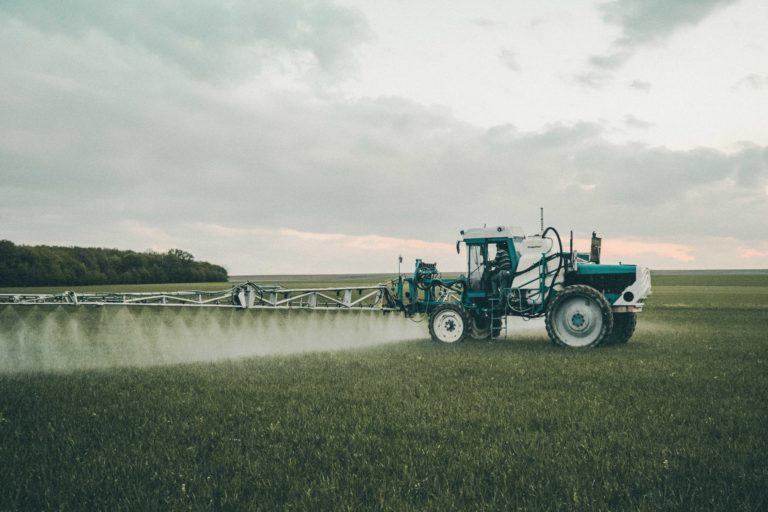The leader of the newspaper La Nación of June 11, states that, in the face of the implementation of the European Green Deal, Costa Rica’s agroindustrial producers will have to make some adjustments. Green adjustments. These include the use of recyclable packaging, controls on land used for cultivation, which cannot be recently deforested, and the reduction of the use of pesticides and fertilizers.
The text highlights Costa Rica’s green vocation and indicates that we must make the most out of our environmental advantage over commercial competitors. In addition, it mentions the recent detection in Germany of a shipment of melons from Costa Rica, with a concentration of Chlorothalonil that far exceeds the permitted limit. Chlororothalonil is a carcinogenic agrochemical that has been banned in Europe, but is allowed in our country.
This situation forces us to be self-critical. On the one hand, Costa Rica has an excellent track record in relation to the creation of national parks and conservation areas. On the other, our progress is very limited in relation to the quality of the water in our rivers, waste management and the use of hazardous substances, including agrochemicals.
Half-progress
Isabel Méndez lives in Oreamuno de Cartago and for more than nine months she has not been able to use tap water, because it is contaminated with Chlororothalonil. Yes, the same substance that was in the melons of the German cargo. She and 10,000 other people in the area have had to leave their homes daily to collect water that is distributed in cisterns, to drink, wash their food, cook and bathe.
This situation came to light in March of this year, thanks to a report produced by the Deutsche Welle news network, as a reaction to the famous shipment of melons. Deutsche Welle conducted a detailed investigation into pesticide use in the country and identified the contamination problem in Oreamuno. That is, the excess of Chlororothalonil in melons was just the tip of the iceberg.
There are plantations within the protection area of one of the water sources of Oreamuno. This is prohibited. Since crops are not planted by themselves, someone came to that place, thought about productivity, cut down the trees, planted the crops and applied pesticides excessively. Probably that someone will say that it is diffuse pollution, because everyone in the area uses Chlororothalonil, so no one will be found responsible. If there is no one responsible, who is liable for the damage?
Trade and social management
In addition to the Green Deal mentioned in the La Nation leader, a European corporate sustainability due diligence directive has recently been approved. This directive requires that a large European or European-based company, importing resources or goods, such as vegetables or fruit, must monitor its suppliers to ensure that they do not pollute the environment or put people or the community at risk. This means that, most likely, we will soon have more news like that of Deutsche Welle.
European NGOs will be very vigilant about any incidents and will begin to investigate in depth and determine responsibilities. In addition, this new guideline focuses on social issues and not only on environmental ones, as proposed by the Green Deal. And when we talk about social, we talk about the health and safety conditions of those who work in these exporting companies and those of their suppliers, as well as the health of the communities that these companies may be impacting. Oreamuno’s case would have been a perfect example of this.
Recently, cases of workers living in overcrowded conditions, with lack of ventilation and with migratory irregularities, have been reported in the north of the country and in Guanacaste. On the other hand, according to the data reported to the Occupational Health Council, in 2020, 106 people died from accidents and occupational diseases. These cases arise as a result of very limited, if not non-existent, institutional controls. To a large extent, these situations have prompted the European Union to take action on the matter.
The role of banking
For about a decade now, when placing money in local banks, multilateral financial institutions have demanded that the performance of the final subjects of credit be evaluated. These assessments are carried out through Environmental and Social Management Systems, known as ESMS, which decrease the likelihood of funding anyone who is dangerously newsworthy and that eventually will tarnish their reputation.
There is an interest on the part of the European Union and international banks to reduce the environmental and social impacts of Costa Rican companies. This is directly related to the prestige of our country, which is eroded every time a case like that of Oreamuno arises. So much more to say about the reputation of the companies that, soon, will have to answer for the damage.
If we want to strengthen our trade relations with Europe and other markets, we must sweep away the dirt that we have naively hidden under the carpet. If not it will be others who do it.

